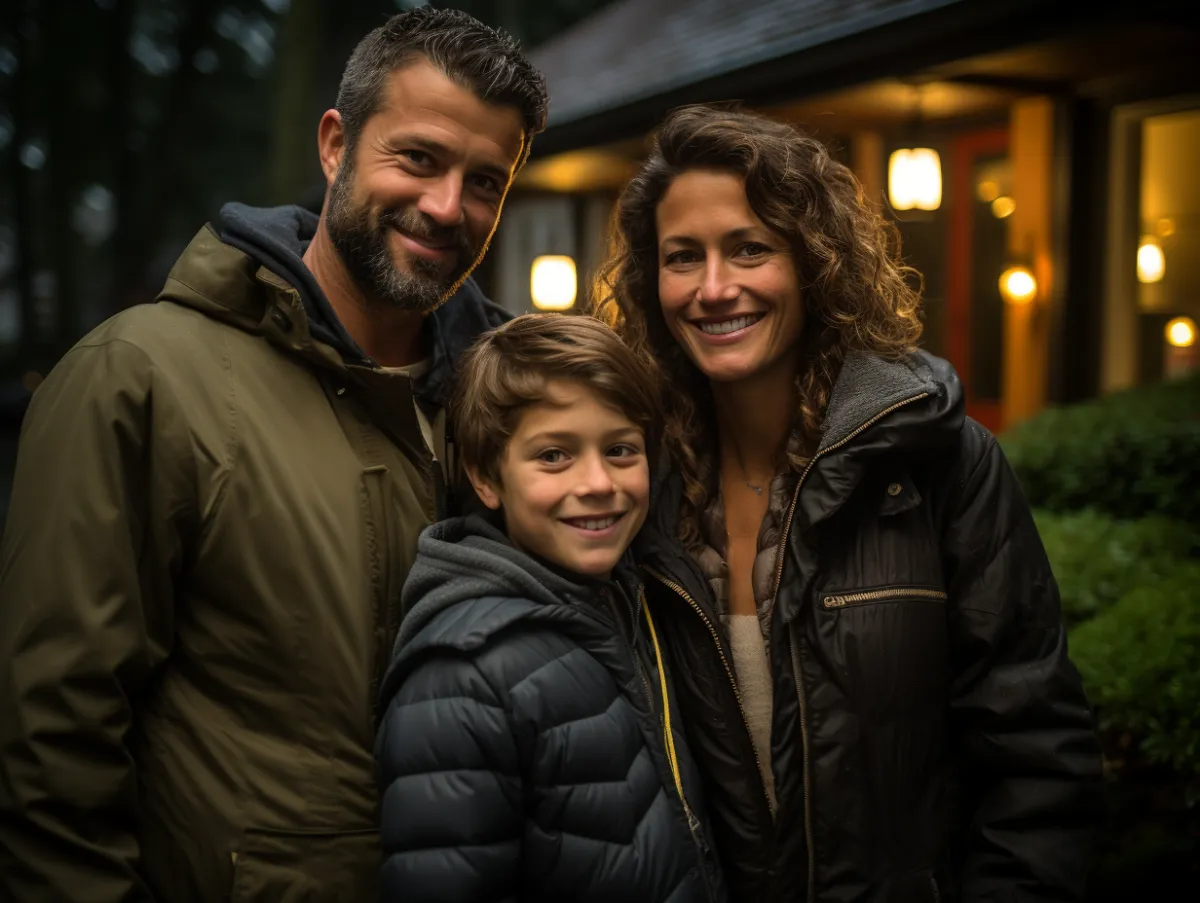Tiffany Talks Property: Your VA, MD, & DC Real Estate Compass
Explore 'Tiffany Talks Property: Your VA, MD, & DC Real Estate Compass' for a deep dive into the dynamic real estate markets of Virginia, Maryland, and Washington D.C. Join Tiffany Blackshear as she shares her wealth of knowledge, offering insightful guidance, latest market trends, savvy investment tips, and practical advice for both buyers and sellers. Whether you're a first-time homebuyer, a seasoned investor, or somewhere in between, this blog is your go-to source for navigating the complexities of real estate with confidence and ease. Start your journey to property success with Tiffany, your trusted real estate compass.

Unlocking the Door to Homeownership: Navigating the Down Payment and Beyond
This article provides strategies for aspiring homeowners to master the down payment, including different types of loans, effective savings strategies, exploring down payment assistance programs, and essential tips for first-time home buyers.
Effective Strategies for Saving for a Down Payment
When it comes to saving for a down payment, there are several effective strategies to consider. One such strategy is to park savings in high-yield savings accounts, money market accounts, or CDs. These options offer better interest earnings compared to regular savings accounts. Automation of savings can also be a game-changer. By setting up regular deposits from income, you ensure consistent contributions towards the down payment. This not only makes saving less of a chore but also reduces the likelihood of spending the money on other things.
In a bid to boost savings, exploring additional sources of income through side hustles or turning hobbies into money-making opportunities can be beneficial. For instance, if you're a skilled photographer, you might consider selling your photos online or offering freelance photography services. To potentially double your saved amount, consider looking for down payment matching programs offered by mortgage lenders or non-profit/government assistance programs. Lastly, financial discipline is critical. Prioritize down payment savings over other financial goals and cut unnecessary spending. This could mean canceling unused subscriptions, eating out less, or even downsizing your living space to save on rent.
Effective Strategies for Saving for a Down Payment
Successfully saving for a home down payment requires strategic financial planning. One of the most effective strategies is to park savings in high-yield savings accounts, money market accounts, or Certificates of Deposit (CDs). These financial products are designed to maximize interest earnings, thereby speeding up the growth of your down payment fund. For instance, a high-yield savings account offers a higher interest rate than a typical savings account, enabling your money to work harder for you.
Another effective strategy is to automate savings by setting up regular deposits from your income. This not only ensures consistent contributions towards your down payment but also reduces the temptation to spend the money on non-essential items. Furthermore, aspiring homeowners can explore additional sources of income to boost their savings. This could mean taking on a side hustle or monetizing a hobby. For instance, if you have a knack for graphic design, offering freelance services can provide an additional income stream.
Similarly, down payment matching programs from mortgage lenders or non-profit/government assistance programs can be a great help. These programs can potentially double your saved amount, significantly shortening your saving timeline. On a personal level, reducing unnecessary spending and prioritizing down payment savings over other financial goals can also make a substantial difference. For example, cutting back on dining out or subscription services and redirecting those funds to your down payment savings can bring you closer to your goal of homeownership.
Exploring Down Payment Assistance Programs for First-Time Home Buyers
Entering into the housing market for the first time can be a daunting experience, especially when considering the significant financial commitment of the down payment. For first-time homebuyers, a broad range of down payment assistance options exist to help facilitate this process. These include the possibility of receiving gifts from family or friends, which can substantially contribute towards the down payment. Examples of such gifts could be a generous donation from parents or a wedding gift dedicated towards the down payment.
Another viable strategy for first-time buyers is to utilize retirement funds for the down payment. Although this may not be the most ideal option for everyone, it is worth exploring if it can make the difference in affording a home. Some first-time buyers may also consider temporarily moving back home or sharing accommodations to save on rent. This strategy allows for a more aggressive saving plan, which could expedite the journey towards homeownership [1, 3].
In addition to these strategies, several mortgage lenders, non-profit organizations, and government assistance programs offer down payment matching programs. These programs essentially provide a dollar-for-dollar match for a portion of the down payment, effectively doubling the savings of aspiring homeowners. These programs are designed to provide additional financial support to homebuyers, making the dream of homeownership more attainable. It's crucial for first-time buyers to research and explore these assistance programs as they can significantly alleviate the financial burden of the down payment.
Financial Planning for Homeownership: Beyond the Down Payment
As an aspiring homeowner, the down payment is a significant part of your financial planning, however, there are additional costs that also require careful consideration and planning. These costs often include closing costs, mortgage reserves, routine maintenance, moving expenses, and even unanticipated emergencies. Closing costs, for instance, can run between 3-4% of the cost of the home, and they encompass a variety of expenses such as loan origination fees, appraisal fees, and title insurance. Mortgage reserves, on the other hand, are funds that you set aside to cover mortgage payments in case of income loss or other financial emergencies.
Furthermore, the cost of maintenance can't be overlooked as homeowners are responsible for the upkeep of their property. This could range from regular tasks like lawn care to larger, unexpected repairs like a broken HVAC system or roof replacement. Moving expenses, too, can add up, especially for long-distance moves or moves that require professional movers. Finally, it is always wise to have a fund set aside for emergencies that may arise. This could include anything from a sudden job loss to a major home repair that is needed unexpectedly.
In conclusion, it's crucial to factor in these additional costs into your financial planning when preparing to purchase a home. Not only will this ensure a smooth transition into homeownership, but it will also provide a safety net to avoid potential financial strain. This comprehensive approach to financial planning for homeownership will enable you to move into your new home with peace of mind and financial stability.
Essential Tips for First-Time Home Buyers
Embarking on the journey of purchasing a home for the first time can be exhilarating, but it also requires careful financial planning and decision-making. One of the foundational steps towards achieving this goal is to pay off all outstanding debt. This not only improves your creditworthiness in the eyes of mortgage lenders but also provides a stable financial ground for the impending homeownership responsibilities.
Building an emergency fund is another crucial step in this process. An emergency fund serves as a financial safety net, protecting you from unexpected expenses or sudden loss of income. It is recommended that this fund be robust enough to cover at least three to six months' worth of living expenses.
When it comes to the actual home purchase, financial experts advise that your house payment should not exceed 25% of your take-home pay. This strategy helps to avoid financial strain and ensures you have enough resources to cover other living expenses and savings goals.
Regarding the down payment, aspiring homeowners should aim to save at least 20% of the home's purchase price. This strategy not only reduces the amount of the home loan but also eliminates the need for private mortgage insurance (PMI). PMI is usually required by lenders when the down payment is less than 20%, and it can add significantly to the overall cost of the mortgage.
Before you start house hunting, it's essential to get preapproved for a loan. Loan preapproval gives you a clear understanding of how much you can afford and demonstrates to sellers that you're a serious and capable buyer. It also places you in a better position when negotiating the price of a home.
Finally, when considering loans, a 15-year fixed-rate conventional loan can be an excellent choice. Such loans offer stability since the interest rate remains constant throughout the loan term. They also typically have lower interest rates than their 30-year counterparts, meaning you'll pay less in interest over the life of the loan.

Tiffany Blackshear
With a unique blend of psychological insight and tech-savvy professionalism, Tiffany Blackshear brings a nuanced approach to Virginia, Maryland, and Washington D.C.’s real estate market. Her client-centered philosophy ensures a tailored experience for every client, backed by expertise, integrity, and a commitment to achieving your real estate goals.
Shape Your Real Estate Future
Complete our survey and let us customize your home buying or selling journey.
By completing this quick questionnaire, you'll help us tailor our conversation to your unique needs and preferences, ensuring that every interaction is a step closer to finding your dream home or making a successful sale. Your input matters, and together, we'll create a personalized roadmap to your real estate goals. Take a few moments to complete the survey, and let's embark on this exciting journey together.


















